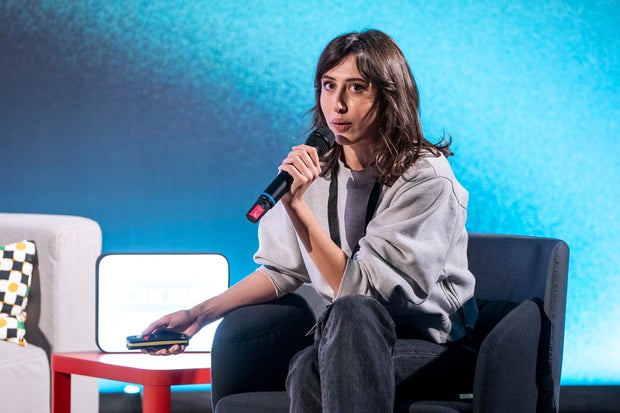The Italian government said on Friday that a journalist from the country had been detained by Iranian authorities for a week and it was unclear where she was being held. The Italian Foreign Ministry is working with Iranian officials to “clarify Cecilia Sala's legal situation and determine the conditions for her detention,” according to a statement from the ministry.
Sala was inside Iran reporting for the Italian newspaper Il Foglio, according to an article published by the outlet on Friday, when she was arrested on December 19. The editor of the newspaper demanded the immediate release of the article, saying “journalism is not a crime.
“Cecilia was in Iran, on a regular visa, to tell a story about a country she knows and loves, a country where information is suppressed by repression, threats, fear, violence, detention, to often against journalists themselves,” the editor of Il Foglio, Claudio. Cerasa said in the article.
Elena Di Vincenzo Archive/Elena Di Vincenzo/Mondadori/Getty Folder
He said the newspaper only decided to publish a story about Sala's arrest after receiving “assurance from our diplomatic leaders that informing readers of the news would not slow down diplomatic efforts to bring her home.” she was arrested.”
The Iranian government had not acknowledged Sala's arrest before Friday, and none of the country's official media was reporting on it. Some Iranian analysts who spoke to CBS News on the condition of anonymity noted that Sala may have been retained to be used as a bargaining chip in talks about two Iranian nationals who were detained in Italy a few months ago over sanctions violations.
In her statementThe Italian Foreign Ministry said Sala was detained by Tehran police while he was “in Iran to carry out journalistic services”. The ministry said that Italian Ambassador Paola Amadei had made a consular visit “to verify the situation and the state of detention” of Sala.
The ministry did not confirm that she was being held at the notorious Evin prison outside Tehran, as reported by Il Foglio. They said her family had been “informed of the results of the consular visit,” without giving further details.
Regardless of the reason for her detention or any charges eventually announced against Sala, the Islamic clerics who rule Iran have a solid record. to satisfy disagreements.
All media outlets in the country are tightly controlled by the government. Street protests against supreme leader Ayatollah Ali Khamenei, fueled by anger over the killing of a young woman in police custody and the execution of religious ceremonieshave been forcibly removed more than once in recent years.
The latest version of Sala article published in Il Foglio is a political study examining the effects of Khamenei's regime on the a major collapse of Iran's friendship in Syriathe dictator Bashar al-Assad.






